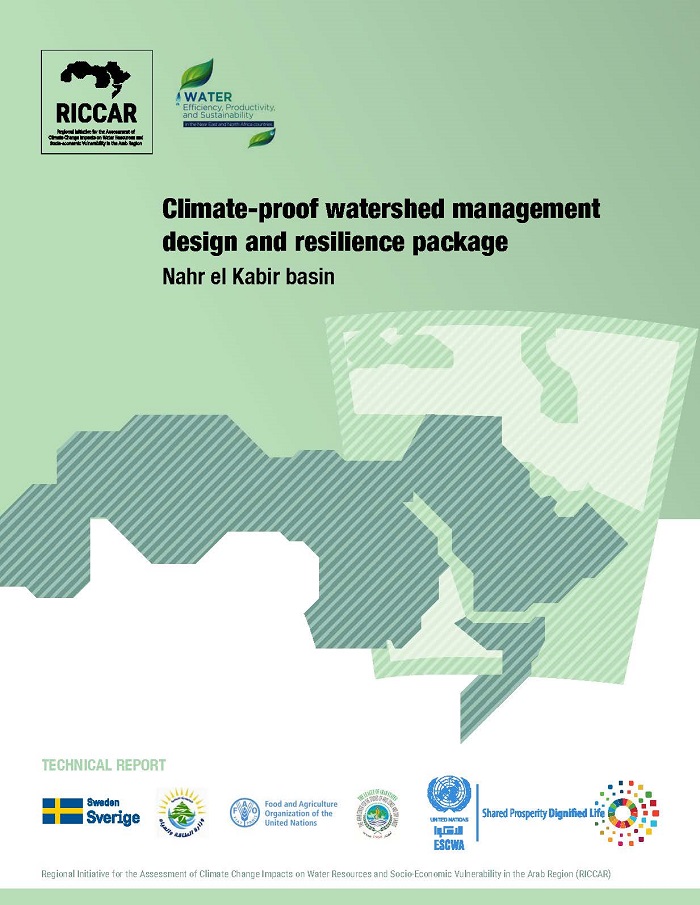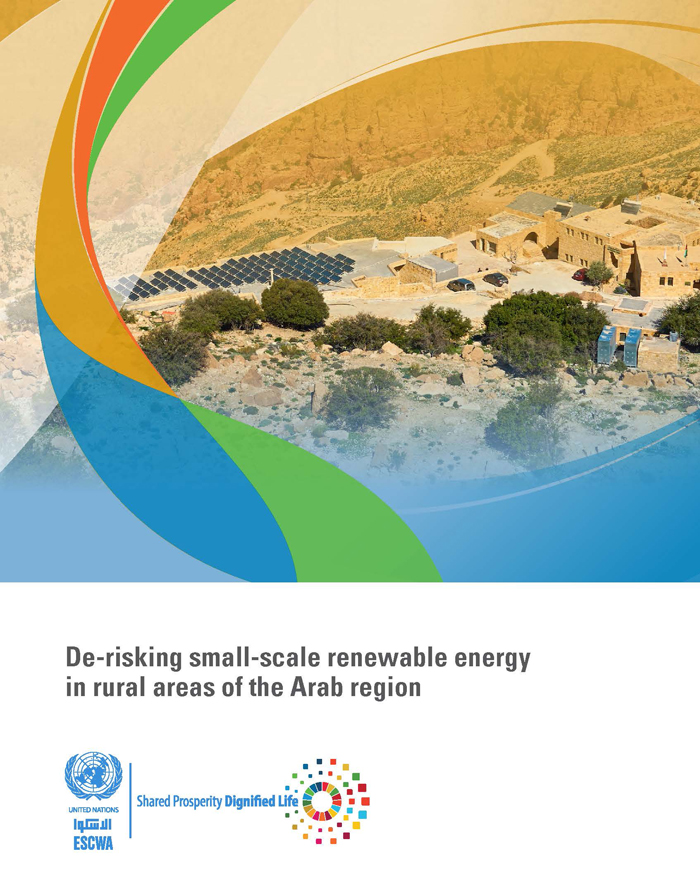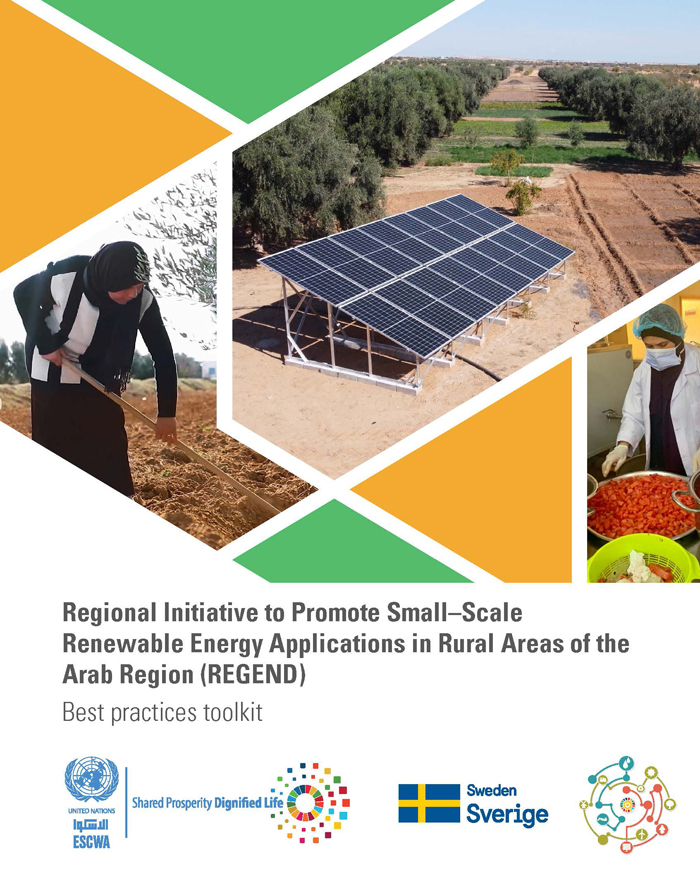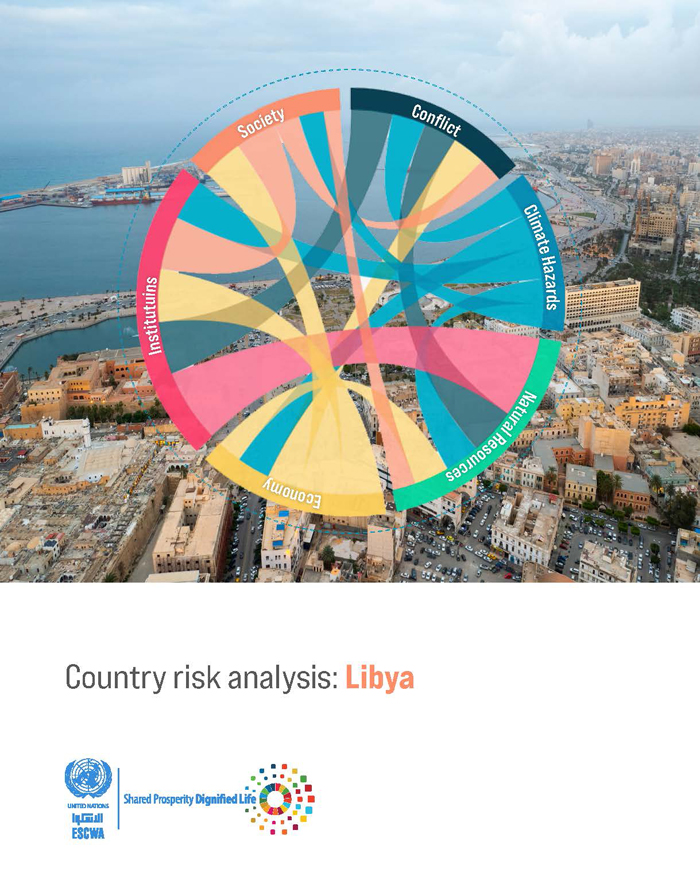
ESCWA Publication: E/ESCWA/CL1.CCS/2022/RICCAR/TECHNICAL REPORT.14
Country: Lebanese Republic, Syrian Arab Republic
Publication Type: Reports & studies
Cluster: Climate Change and Natural Resource Sustainability
Focus Area: Climate change, Natural resource sustainability
Initiatives: RICCAR, Arab Centre for Climate Change Policies
SDGs: Agenda 2030, Goal 2: Zero Hunger, Goal 6: Clean Water and Sanitation, Goal 13: Climate Action
Keywords: River basins, Water resources, Water management, Climate change, Climate change adaptation, Resilience, Crops, Barley, Weather forecasting, Sustainable development, Lebanon
Climate-proof watershed management design and resilience package: Nahr el Kabir basin
January 2024
Arab States are particularly affected by water stress, taking 85 per cent of total available freshwater resources, compared to a global average of 21 per cent. Lebanon does not escape the challenge of water management. The Lebanese environment has become increasingly vulnerable to the effects of climate change, particularly rising temperatures, droughts and flooding. Therefore, an integrated assessment of the vulnerability, institutional mapping, regional climate projections, crop simulation and participatory consultations firmly based on a scientific approach have carried out in the Nahr el Kabir basin to strengthen the resilient management of watersheds and improve adaptation to climate change at the watershed level.
This study was carried out within the framework of the inter-institutional contribution agreement (FAO-ESCWA) aimed at “Increasing watershed resilience to climate change: Implementing the 2030 Agenda for water efficiency/productivity and water sustainability in NENA countries – Work Package Component on achieving SDG 6.4” to support the implementation of the FAO project entitled “Implementing the 2030 Agenda for Water Efficiency, Productivity and Sustainability in the Near East and North Africa Countries (WEPS-NENA)”. This project is led by FAO with funding from the Swedish Cooperation Agency International Development Agency (SIDA) and extends over the period between December 2016 and December 2022. This technical report was prepared through a collaborative partnership between ESCWA and the Arab Center for the Study of Arid Zones and Dry Lands (ACSAD) in consultation with the Ministry of Energy and Water of Lebanon.
Related content
Climate change
, Natural resource sustainability
,
Arab States are particularly affected by water stress, taking 85 per cent of total available freshwater resources, compared to a global average of 21 per cent. Lebanon does not escape the challenge of water management. The Lebanese environment has become increasingly vulnerable to the effects of climate change, particularly rising temperatures, droughts and flooding. Therefore, an integrated assessment of the vulnerability, institutional mapping, regional climate projections, crop simulation and participatory consultations firmly based on a scientific approach have carried out in the Nahr el Kabir basin to strengthen the resilient management of watersheds and improve adaptation to climate change at the watershed level.
This study was carried out within the framework of the inter-institutional contribution agreement (FAO-ESCWA) aimed at “Increasing watershed resilience to climate change: Implementing the 2030 Agenda for water efficiency/productivity and water sustainability in NENA countries – Work Package Component on achieving SDG 6.4” to support the implementation of the FAO project entitled “Implementing the 2030 Agenda for Water Efficiency, Productivity and Sustainability in the Near East and North Africa Countries (WEPS-NENA)”. This project is led by FAO with funding from the Swedish Cooperation Agency International Development Agency (SIDA) and extends over the period between December 2016 and December 2022. This technical report was prepared through a collaborative partnership between ESCWA and the Arab Center for the Study of Arid Zones and Dry Lands (ACSAD) in consultation with the Ministry of Energy and Water of Lebanon.



